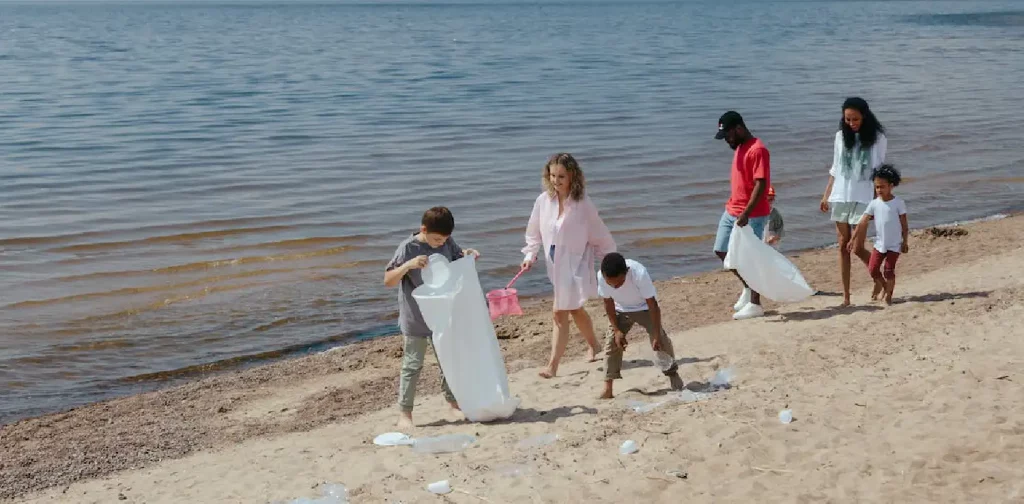Mainstreaming Sustainable Tourism Through Environmental Education

Photo by Ron Lach on Pexels
Over the decades, tourism has continued to expand and diversify, emerging as one of the economic sectors with the fastest rate of growth globally. As such, it has become increasingly important to ensure the industry is good for people and the planet. Mainstreaming sustainable tourism is achievable through various efforts and well-planned strategies, such as environmental education.
Sustainable Tourism
Tourism is an important source of foreign exchange and employment. Data from the UN World Tourism Organization (UNWTO) show that international tourists increased from 25 million in 1950 to over 1.2 billion in 2023, despite the COVID-19 pandemic. By 2030, the number may reach over 1.4 billion.
Despite its role in boosting a country’s economy, the tourism sector has drawbacks that primarily affect local communities and environment. Therefore, ensuring its sustainability in all aspects is essential.
According to UNWTO, sustainable tourism can be defined as “tourism that takes full account of its current and future economic, social, and environmental impacts, addressing the needs of visitors, the industry, the environment, and host communities”. So, besides the economy, sustainable tourism should also contribute to protecting the natural heritage and preserving the culture and traditional values of local communities.
Environmental Education in Tourism
The role of education is vital in sustainable development, and it includes environmental education. Essentially, environmental education involves teaching people about how nature works and how humans can manage their behaviors to help protect biodiversity and ecosystems and lead sustainable lives.
To achieve sustainable tourism, environmental education is crucial as it raises public knowledge and awareness of the environment and pushes people to take action toward its improvement. This concept has been implemented in various tourism destinations, both through formal and informal education.
Implementations in Southeast Asia
Hoi An is the first city in Vietnam to successfully manage tourism sustainably, especially in terms of waste management. It fosters collaborative efforts to conserve both the local heritage and the environment undertaken by governmental organizations, enterprises, and local residents.
A partnership between DUEd (the University of Danang) and the Management Board of the Cham Island Marine Protected Area (MPA) aims to improve students’ understanding of solid waste management and community-based management.
How? It revises the curriculum with practical information and hands-on activities. For instance, student volunteers join MPA-hosted group discussions with local communities to learn about the challenges of solid waste segregation.
Another example is in Puncak, Indonesia. Puncak plays multifunctional roles in both conservation and tourism due to its location in the most populated urban cluster in Indonesia and upstream of the Ciliwung watershed, the main river flowing through Jakarta.
The Konsorsium Penyelamatan Puncak (Save Puncak Consortium) is an environmental education-based movement initiated by the Center for Regional Systems, Analysis, Planning, and Development, IPB University, NGOs (Forest Watch Indonesia, Ciliwung Care Community), and some local community representatives.
This consortium mainly focuses on enhancing the quality of Puncak water catchment area. It also implements rapid rural appraisal (RRA) and participatory rural appraisal (PRA) to encourage discussion at the village level about the value of environmental conservation in disaster risk management.
More Funding Needed
Environmental education can be a powerful tool to ensure sustainable tourism. However, truly collaborative, inclusive, comprehensive, and effective environmental education has its challenges, including funding.
The benefits of environmental education in sustainable tourism can mostly be seen long-term. Meanwhile, maintaining short-term courses and programs as students and other stakeholders cycle in and out requires significant funding.
The funding is also needed to ensure decent work for everyone involved and finance more research for better understanding and innovations. Therefore, encouraging public-private partnerships that could finance environmental education is key to lasting and impactful efforts for sustainable tourism.


 Indian Gig Workers Push Back Against 10-Minute Delivery Service Strain
Indian Gig Workers Push Back Against 10-Minute Delivery Service Strain  Call for Governance: Grassroots Initiatives Look to Scale Efforts to Conserve Depleting Groundwater
Call for Governance: Grassroots Initiatives Look to Scale Efforts to Conserve Depleting Groundwater  Integrating Environment, Climate Change, and Sustainability Issues into Education Systems
Integrating Environment, Climate Change, and Sustainability Issues into Education Systems  Finally Enforced: Understanding the UN High Seas Treaty
Finally Enforced: Understanding the UN High Seas Treaty  Risks and Opportunities of Submarine Communication Cables for Sustainable Development
Risks and Opportunities of Submarine Communication Cables for Sustainable Development  Rising Attacks and Violence Against Land and Environmental Defenders
Rising Attacks and Violence Against Land and Environmental Defenders